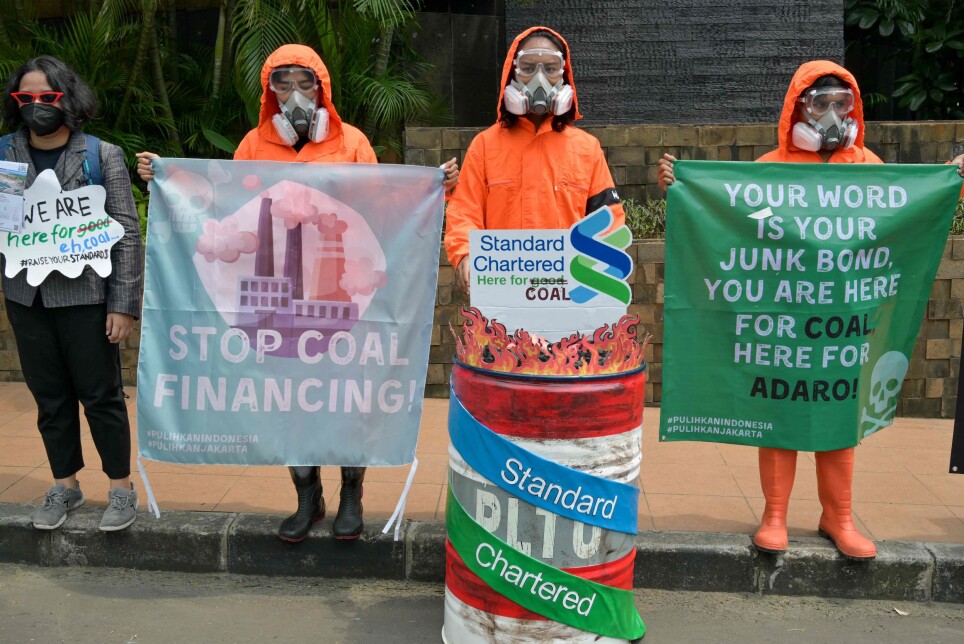THIS ARTICLE/PRESS RELEASE IS PAID FOR AND PRESENTED BY NUPI, Norwegian Institute of International Affairs - read more

Why lack of will to limit climate change amongst ASEAN states?
The countries of Southeast Asia are among the most vulnerable to the effects of climate change. Why, then, has there been so little will to take action? This paradox is the focus of a new article from the ACCEPT project.
“In many countries around the world, including Norway, there are people in central positions who fail to recognize that change is need in the energy sector if we are to decrease harmful emissions. They say ,'Yes, climate change is an important problem which we must do something about' – and then they go on building coal-power plants and the like,” explains Research Professor Indra Øverland (NUPI) concerning what he and colleagues call the climate and energy paradox in Southeast Asia.
In their article 'The ASEAN climate and energy paradox', recently published in Energy and Climate Change, Øverland and colleagues examine this issue as regards the ten member-states of the Association of Southeast Asian Nations (ASEAN).
Øverland notes: ‘The paradox is that the ASEAN countries are so vulnerable to climate change, and yet have shown so little interest in contributing to limit it.”
“Coal not acceptable for developing countries either’
One energy source has a particularly negative impact on Southeast Asia: coal power.
“Many of the countries and actors in the region stress that industrialized Western countries have emitted the most, historically speaking” – Øverland continues, adding that he sees this as a valid point.
“But if countries keep constructing new coal-power plants, often not incorporating the most efficient technology available, this will undermine global climate efforts. There are difficult ethical questions related to climate change and the fair division of emission cutbacks, but it should be made clear that building new coal-power plants is not acceptable for developing countries either. You have to draw the line somewhere. This of course applies to industrialized countries as well, like Germany, which recently opened a big new coal-power plant.”
The new article by Øverland and colleagues is a result of the research project Energy and Climate Change in ASEAN (ACCEPT), a collaboration between the Jakarta-based ASEAN Centre for Energy (ACE) and NUPI.
“The ACCEPT project aims at assisting countries in Southeast Asia to overcome the artificial separation between the energy sector and climate policy, and, in particular, strengthening their competence on climate issues in the energy sector. This is a problem for many states, not only the members of ASEAN,” Øverland explains.
Sea-level rise biggest threat
He adds that sea-level rise is probably the main climate-related threat facing the ASEAN member-countries:
“Southeast Asia is among of the regions with the most islands in the world. This means extremely long coastlines – Laos being an exception. In addition, the major cities in the region, for example Jakarta and Manila, are low-lying and vulnerable to flooding.”
“Which countries are hardest hit?’
“It depends. Several ASEAN countries are severely threatened by sea-level rise. Moreover, Singapore and parts of Indonesia are very densely populated, which means that the people living there have few places to go in case of flooding. Cambodia and Myanmar are particularly vulnerable, being poor and more fragile states. And Vietnam is vulnerable because it relies on food production from precisely the areas most exposed to sea-level rise,” Øverland explains.
Four recommendations
How, then, should the countries of Southeast Asia go about curbing the negative development? Øverland offers four recommendations:
- Stop building coal-power plants.
- Phase out the use of imported coal in Vietnam and the Philippines: it also puts a burden on the trade balance and is a threat to energy security.
- Establish more attractive frameworks for investments in renewable energy.
- Tighten up the national objectives under the Paris Agreement.
Not only ASEAN, and not only a burden
Øverland stresses that the ASEAN states are not the only ones that need to manage climate and energy issues better:
“This applies to Norway as well, to take one example. The ASEAN countries are simply the focus of this article and the ACCEPT project.”
He adds:
“It’s important to emphasize that climate policy and an energy-system shift is not only a burden and a problem: it also represents a considerable business opportunity, and one that the ASEAN countries should seize.”
Reference:
Indra Overland et.al.: The ASEAN climate and energy paradox. Energy and Climate Change, 2021.
———
Read the Norwegian version of this article at forskning.no
See more content from NUPI:
-
The war in Ukraine: "France and the UK clearly stand out"
-
How Iran’s regime exploits emotions to crush protests
-
Improving the impact of the UN Peacebuilding Commission
-
Controversial calories: How do we measure hunger?
-
How Norway and the EU can collaborate in the minerals and battery sector
-
Nigerian authorities plan to close refugee camps housing a million people






































